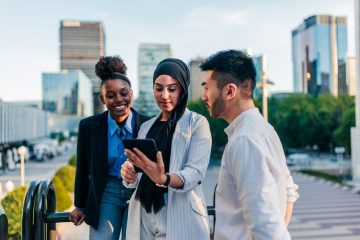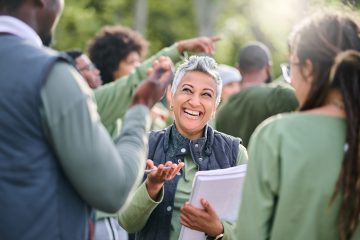We are noticing an increasing number of our clients thinking about the deep learning that can arise from real-life, real-time interactions from learners when they get together. We have started to take this further, by creating opportunities to deliver in-person and online learning experiences that include social learning.
This is not just about using the latest buzzword or jumping on the next bandwagon – we are working with our clients to find ways to harness the benefits of collaboration and to be more cognisant of those benefits. Social learning is a powerful tool that can easily become part of any blended learning programme.
So, what is social learning in simple terms and why do we need to think about it?
- Social learning describes the cognitive process of taking on new knowledge and skills in a social work setting beyond the formal learning environment e.g. over coffee, in meetings, as part of coaching and mentoring, by the water cooler, at networking events etc.
- Benefits of social learning include:
- Improved attention and retention – learning ‘sticks’ when we assimilate it in relaxed settings with peers
- Practice makes perfect – observing someone and practicing consolidates knowledge and encourages consistency
- Improved motivation – learning the practical, ‘how-to’ elements of our job from others builds confidence and proficiency
While there will always be a need for formal training, the flexible learning genie is out of the bottle now and seems reluctant to be put back in! Designing social learning into blended learning packages will almost certainly become the new normal for learning and development specialists.


